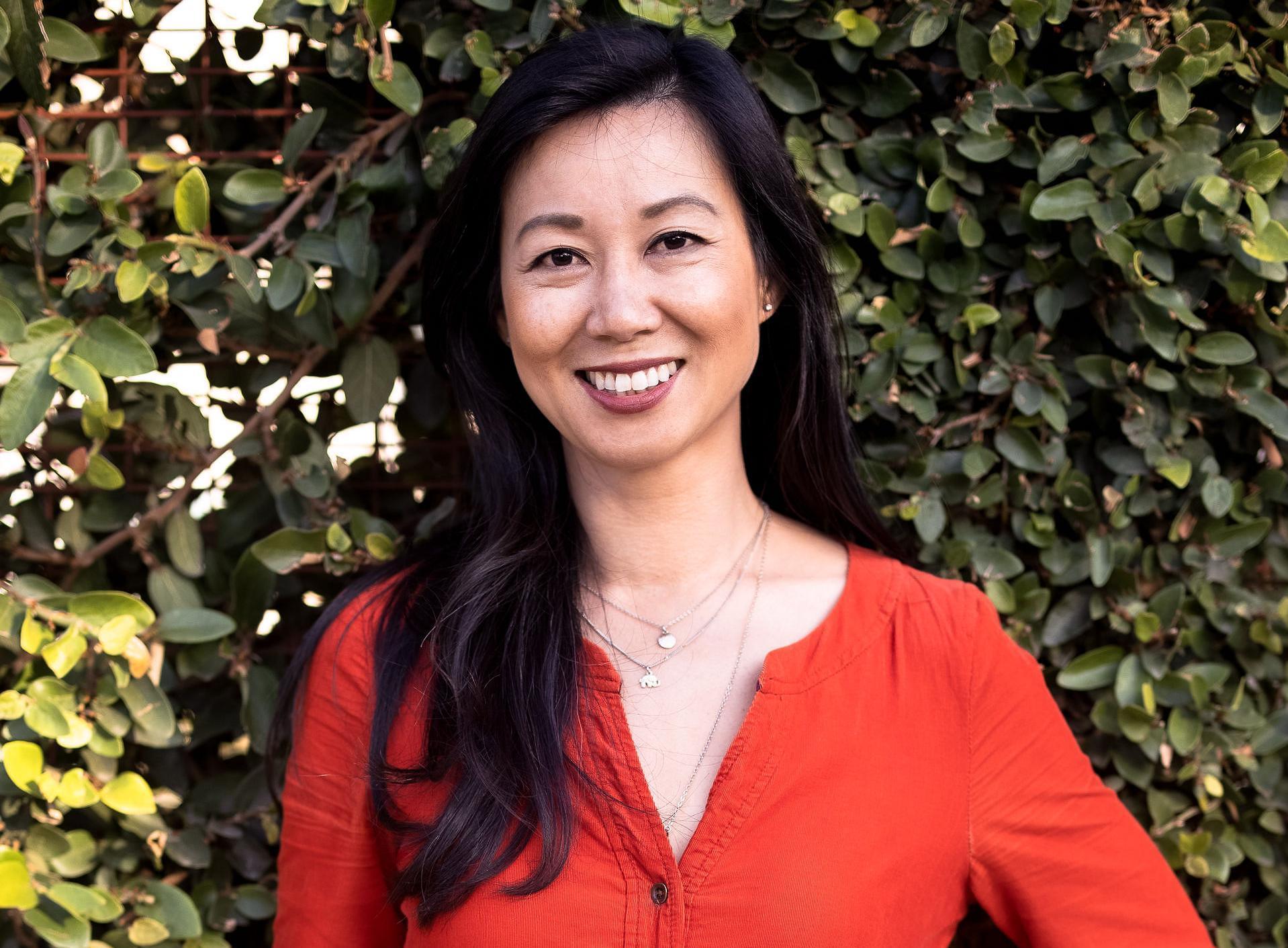
Dr. Cathery Yeh is an Assistant Professor in STEM Education and a core faculty member in the Center for Asian American Studies at the University of Texas at Austin.
Her research examines the role race, class, gender, and language play in the constructions of ability in mathematics classrooms. Funded by the National Science Foundation, Mathematics Education Fund, National Endowment for the Humanities, and other agencies, her scholarship is collaborative, building research partnerships with school districts and communities to attend to the strengths, needs, and goals of teachers, students, and the community served.
Her work as an engaged scholar builds on 20+ years as a dual language classroom teacher and educator, visiting over 300 student homes, while family and community members came into the classroom to co-teach mathematics. Dr. Yeh currently serves on the Board of Directors for the National Council of Teachers of Mathematics.
We invite you to view highlights from this featured speaker's presentations below.
Dr. Yeh's two-part presentation is part of CEEL's Social Justice Mathematics and Multilingual/English Learners Webinar Series
Use the following guide to whilst viewing Session 1 below - Guide: Viewing with a Purpose
-
1. Dr. Cathery Yeh: An Advocate for Equity and Social Justice in Mathematics (1m 41s)
“We live in an era in which students of all ages have – through media and their lived experiences – a more visceral experience of social injustices. However, when people think of social injustice, mathematics rarely comes to mind.”
2. Ethos of Ethnic Studies: Interconnectedness (3m 35s)
“Fifty years of research shows that the best type of instruction builds on children’s mathematical knowledge and their lived experiences. Math is not separate from who we are.”
3. Your Life Story Through a Graph (3m 36s)
“[Has anybody] asked you to tell your life story on a graph?”
4. Mathematics as a Process, Rather Than a Noun (1m 57s)
“Research shows that most students are tracked into a math pathway and their sense of confidence for math is established by the end of their elementary school years.”
5. Using Math to Better Understand [Hi]stories (13m 51s)
“Instead of trying to use context/stories to better understand Math, let's use Math to better understand the world around us!”
6. Tu Lucha, es Mi Lucha: Mathematics for Mo[ve]ment Building (5m 33s)
“How can mathematics be used to better analyze the conditions that led to the emergence of the farm worker movement?”
7. Guiding Framework: About Social Justice (7m 52s)
“We all have standards, and our students should know them... We also have community knowledge, [this] refers to the informal knowledge that students already know and they bring to school. Critical knowledge is the sociopolitical knowledge when we are using Math to help us critique and make sense of inequities.”
8. Guiding Framework: With Social Justice (3m 59s)
“No matter what type of problems we give [our students] we should be asking our students to engage in problem solving. [We should be] asking purposeful questions, connecting to mathematical representations, and eliciting student thinking.”
9. Guiding Framework: For Social Justice (2m 41s)
“As students explore, we explore and build with them... As we ask questions relevant to their lives, they start coming up with ways in which they can consider action items.”
10. Creating Justice-Centered Lessons (1m 20s)
“History is all around us. Numbers and data are all around us... Follow your curiosity, follow the data. The math will present itself.”
-
1. Inclusive Excellence: Designing Math Classrooms for All (2m 22s)
“The sense of inclusion should allow us to broaden access and belonging to the greatest range of students possible, so that they see themselves in the curriculum.”
2. Universal Design for Learning as Multiplicity (4m 43s)
"Multiplicity is that there's multiple means of ways in which students can engage, represent, and all of the components of it... multiplicity is also honoring bilingualism."
3. Universal Design for Learning as Belonging and Community (4m 55s)
“[UDL] is not just about access needs. When our students are in the room, what are the barriers that do not allow them to feel that they belong?”
4. Universal Design for Learning must also Center justice (1m 13s)
“In our schools, racism shows up as ableism and we justify it... schools produce disability...Our goal is to tend to intersectionality and solidarity”
5. Identifying Barriers (2m 44s)
“I have seen more in classrooms of emerging bilinguals where kids have to stand up and follow a sentence frame before there allowed to share their ideas. And we call that supporting their language development, but what we’ve noticed when we do that is that their language variants are actually very limited.”
6. How to Prepare and Maximize UDL (1m 40s)
“To create equity, we have to center on those at the margins...Treating everyone the same, only reproduces inequtiy.”
7. The California Math Framework Implementation (1m 44s)
“... Is your school engaging in time where you're reading a chapter and making sense of it together? [And] not just making sense of it together, but asking, Who do I need to bring in to create this change?”